Rindranirina Ramamonjison
Evaluating LLM Reasoning in the Operations Research Domain with ORQA
Dec 22, 2024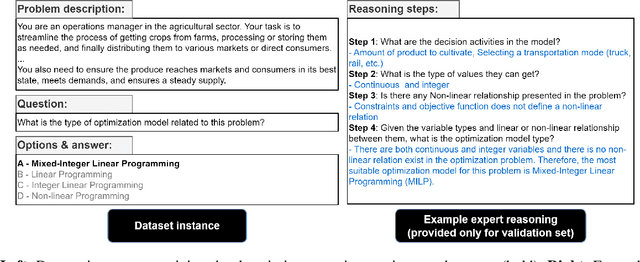


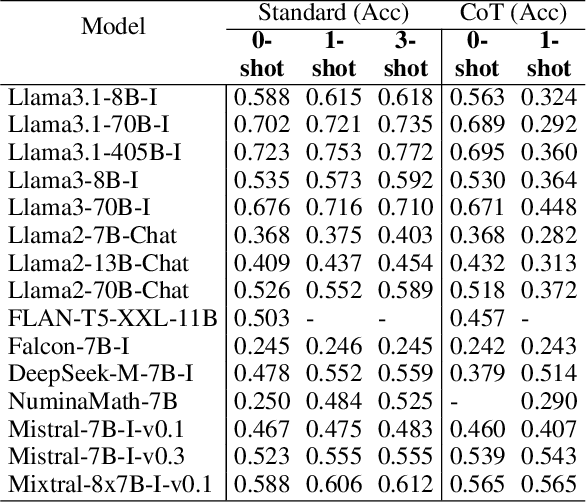
Abstract:In this paper, we introduce and apply Operations Research Question Answering (ORQA), a new benchmark designed to assess the generalization capabilities of Large Language Models (LLMs) in the specialized technical domain of Operations Research (OR). This benchmark evaluates whether LLMs can emulate the knowledge and reasoning skills of OR experts when confronted with diverse and complex optimization problems. The dataset, developed by OR experts, features real-world optimization problems that demand multistep reasoning to construct their mathematical models. Our evaluations of various open source LLMs, such as LLaMA 3.1, DeepSeek, and Mixtral, reveal their modest performance, highlighting a gap in their ability to generalize to specialized technical domains. This work contributes to the ongoing discourse on LLMs generalization capabilities, offering valuable insights for future research in this area. The dataset and evaluation code are publicly available.
NL4Opt Competition: Formulating Optimization Problems Based on Their Natural Language Descriptions
Mar 27, 2023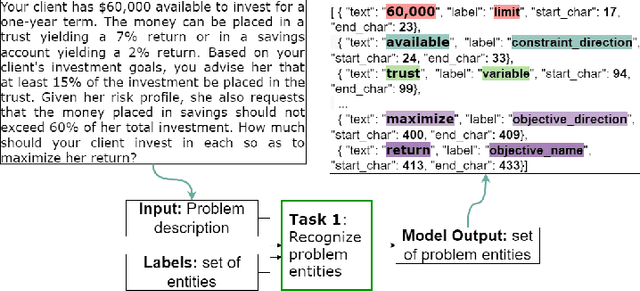
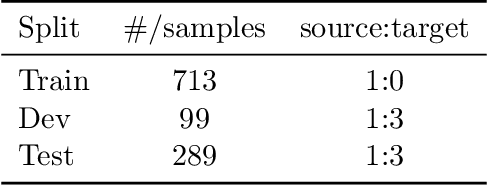
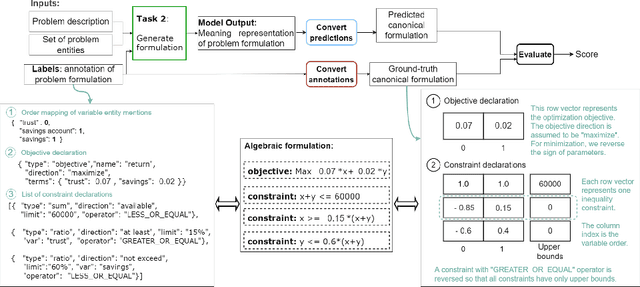

Abstract:The Natural Language for Optimization (NL4Opt) Competition was created to investigate methods of extracting the meaning and formulation of an optimization problem based on its text description. Specifically, the goal of the competition is to increase the accessibility and usability of optimization solvers by allowing non-experts to interface with them using natural language. We separate this challenging goal into two sub-tasks: (1) recognize and label the semantic entities that correspond to the components of the optimization problem; (2) generate a meaning representation (i.e., a logical form) of the problem from its detected problem entities. The first task aims to reduce ambiguity by detecting and tagging the entities of the optimization problems. The second task creates an intermediate representation of the linear programming (LP) problem that is converted into a format that can be used by commercial solvers. In this report, we present the LP word problem dataset and shared tasks for the NeurIPS 2022 competition. Furthermore, we investigate and compare the performance of the ChatGPT large language model against the winning solutions. Through this competition, we hope to bring interest towards the development of novel machine learning applications and datasets for optimization modeling.
Augmenting Operations Research with Auto-Formulation of Optimization Models from Problem Descriptions
Oct 11, 2022



Abstract:We describe an augmented intelligence system for simplifying and enhancing the modeling experience for operations research. Using this system, the user receives a suggested formulation of an optimization problem based on its description. To facilitate this process, we build an intuitive user interface system that enables the users to validate and edit the suggestions. We investigate controlled generation techniques to obtain an automatic suggestion of formulation. Then, we evaluate their effectiveness with a newly created dataset of linear programming problems drawn from various application domains.
 Add to Chrome
Add to Chrome Add to Firefox
Add to Firefox Add to Edge
Add to Edge